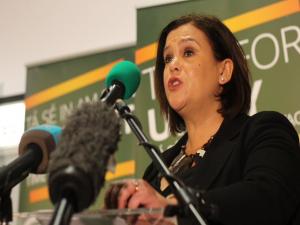
By David Young and Rebecca Black, PA
The voices of those distraught by the closure of cemeteries in Northern Ireland have been heard, Sinn Fein's President has said.
Mary Lou McDonald hinted that her party may drop its opposition to the reopening of graveyards when the issue is discussed at the Stormont Executive on Friday.
Council-run graveyards were closed last month as part of the coronavirus movement restrictions, but there have been mounting calls to reopen them, with bereaved relatives highlighting the mental anguish of being prevented from visiting the graves of loved ones.
While the DUP and UUP back the reopening, Sinn Fein and the Alliance Party have opposed the move amid concerns about the potential health impacts of loosening one of the lockdown measures.
Cemeteries remain open in the Irish Republic.
Mrs McDonald was asked about the issue during an interview on BBC NI's The View on Thursday night.
"I think there is a strong case to be made, I think it will be made tomorrow for looking at those restrictions in terms of the cemeteries and reflecting the kind of measures that we have here in the south," she said.
The Sinn Fein leader added: "People who now are suffering and who are distraught at the fact that they can't enter a cemetery those voices have been heard I know by my colleagues and that discussion needs to happen tomorrow around the executive table."
First Minister Arlene Foster, appearing on the same programme, said she hoped ministers would "do the right thing" when the issue is tabled again at the executive on Friday.
Chief medical officer Dr Michael McBride will give his opinion on the matter during the meeting.
"As far as I am concerned the chief medical officer has no difficulty with us allowing - in a controlled way, in a safe way - for people to visit the graves of their loved ones," said Mrs Foster.
On Thursday morning, Health minister Robin Swann told a Stormont scrutiny committee that he "doesn't see any reason why" cemeteries should be closed.
But he said it was not his decision to make alone, and the approval of the executive was required.
"They could be managed with appropriate measures and supports put in place, because in terms of the mental support that we need to give individuals, there are a number of people in our community who get that reassurance, that mental support and strength, by going to a graveyard and visiting a grave," Mr Swann told the health committee.
"Again it's about the balances that we put in to make sure support mechanisms and restrictions and regulations we put in don't have an adverse effect.
"The chief medical officer and the chief scientific adviser (Dr Ian Young) are providing an input into a number of questions to the executive tomorrow and at that point the executive will make the decision because, although the regulations that are in place are in the name of health, I brought them forward on behalf of the executive.
"The decision will lie with the executive either to ease those or strengthen those."


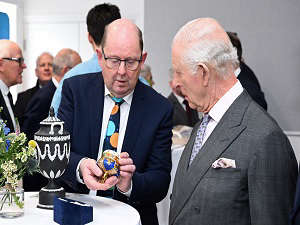 King and Queen conclude three-day visit to Northern Ireland
King and Queen conclude three-day visit to Northern Ireland
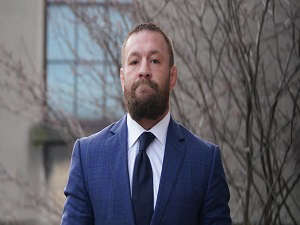 Conor McGregor seeks to introduce new evidence in civil rape appeal case
Conor McGregor seeks to introduce new evidence in civil rape appeal case
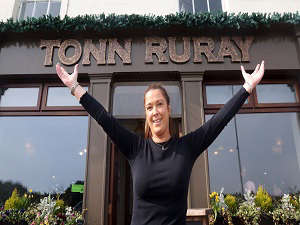 The UK’s ‘best places to live’ revealed in annual Sunday Times guide
The UK’s ‘best places to live’ revealed in annual Sunday Times guide
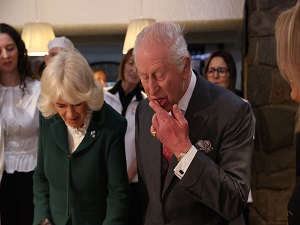 King and Queen test their baking skills during Northern Ireland visit
King and Queen test their baking skills during Northern Ireland visit
 Teachers offered 5.5% pay rise in ‘enhanced package’
Teachers offered 5.5% pay rise in ‘enhanced package’